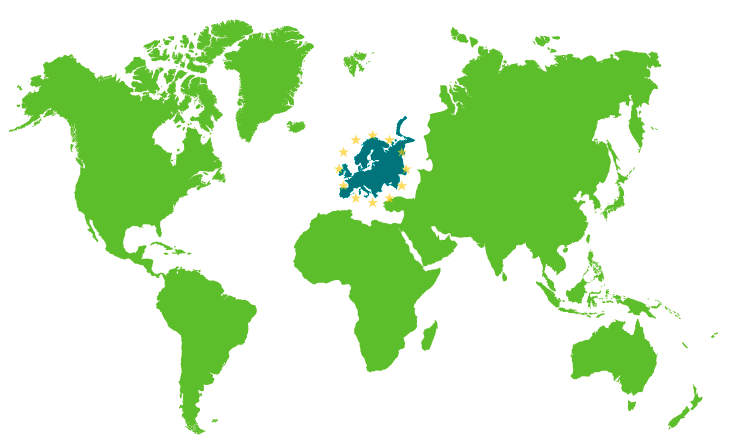23 November 2016
Carbon market, can Europe be lagging behind?


Whereas COP22 closed last November 18th without major announcements, the Environment Committee of the European Parliament will closely look at the reform of the European Emission Trading System (EU ETS) on December 8th: a market weakened by a significant surplus of allowances, and which has already been subject to prior improvements. Yet, the ETS remains the tool supposed to encourage CO2 emissions reduction at the European level whilst triggering investments and innovation in clean technologies. At a time when the carbon price is, and has been for the past few years, ridiculously low, some voices are calling for the end of the ETS. The electricity sector cannot support such a step back in Europe’s climate action, and calls instead for giving the ETS a last chance.
Put an end to « mini-reforms »
In order to reduce the surplus of allowances and enable the ETS market to play its full role in triggering and financing low-carbon investments, the European Commission proposed in February 2015 a revision of the reduction factor of allowances in the market and the creation of new fund aiming to encourage modernization efforts for the new entrants as well as innovation. This proposal was made following two successive reforms (withdrawal of 900 million allowances in 2012 and setting up of a stability reserve in 2013). These necessary reforms remain, in the electricity sector’s eyes, largely insufficient. They would indeed only guarantee for the carbon market the perspective of too many years without a robust price signal, thus definitely sinking the ETS.
One year after the historic Paris Agreement, this option is unacceptable and would have severe consequences for the European climate leadership. Nonetheless, several studies underpin the argument in favor of an ambitious reform: 30€/tCO2, the price level necessary to close the most polluting plants, is a clear possibility!
Combining short-term and long-term measures, the key approach for an efficient reform
Indeed, as stressed in a study published on November 8th by the consultancy FTI-CL, an efficient reform should meet three criteria: a market-based European approach, a comprehensive reform that addresses both short-term and long-term challenges, and compensation measures fit for the sectors the most exposed to a risk of “carbon leakage”. The tools necessary for such approach can be easily implemented: a higher annual reduction for the allowances allocated to the market, a tightened stability reserve, unilateral cancellation of allowances by Member States, or greater consistency with the existing energy and climate policies, at national and European level. All are credible options that can reduce the surplus of allowances and eventually give the carbon market its credibility back.
Another study completed by the consultancy ICIS and about to be published shares similar conclusions: the 30€/tCO2 threshold could be reached already as of 2023, and a long-term trajectory could lead to prices up to 60€ in 2030. Such combination could efficiently contribute to the decarbonisation of the European economy without the recourse to costly national measures. There again, the solution requires combining already-existing tools, which parameters should be reviewed.
The European climate leadership… in the Council’s hands?
Hope remains for the MEPs of the ENVI Committee to live up to the ambition of the Paris Agreement this December 8th. The final decision will nonetheless remain the Member States’, which will express their views in the Council next December 19th at the earliest. Noting that the two upcoming COP will be held on European soil (Bonn in 2023 and Warsaw in 2024), it is of paramount importance that the European Union preserves its leadership on climate challenges. In the long-run, and considering that China, Ontario and Mexico are introducing their own carbon market, it is the very possibility of setting up a global ETS that is at stake. Such historic achievement has never been that close, but it could easily vanish should Europe miss the boat…
Find out more
02 June 2020
“Long live Europe”: it’s time for Europe!
25 February 2020
Brexit: love last 47 years


About us
The Union of the French Electricity Industry is the trade association of the French electricity sector. We bring together companies from the whole value chain of the electricity industry.
Find out more









